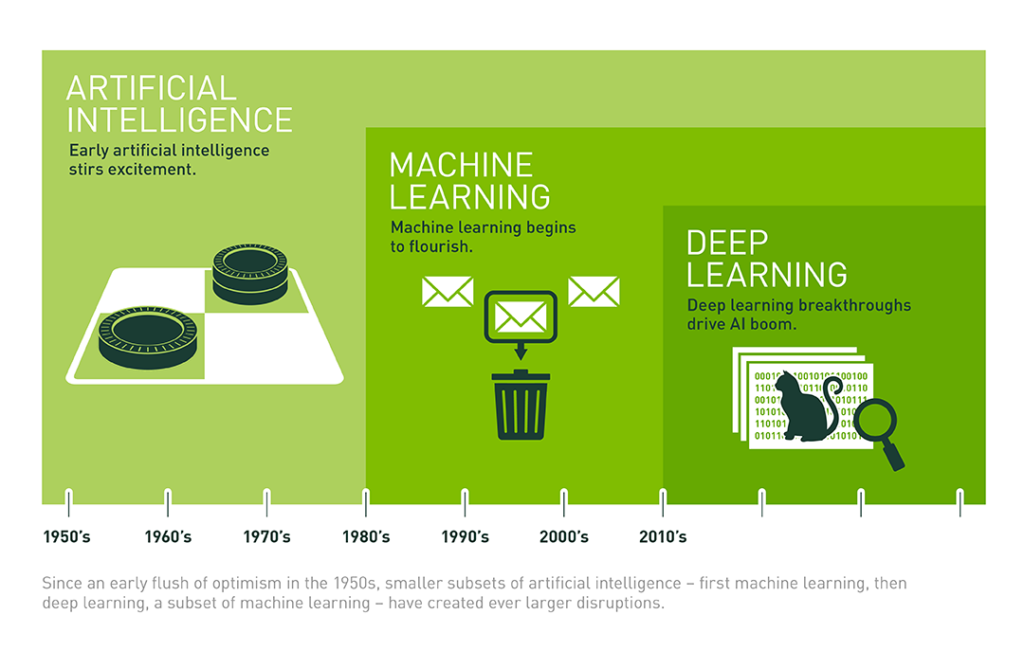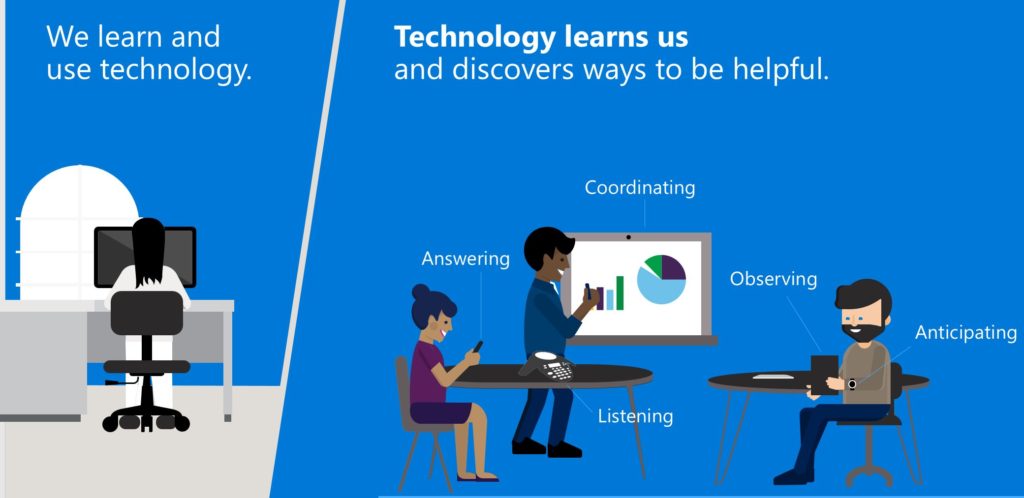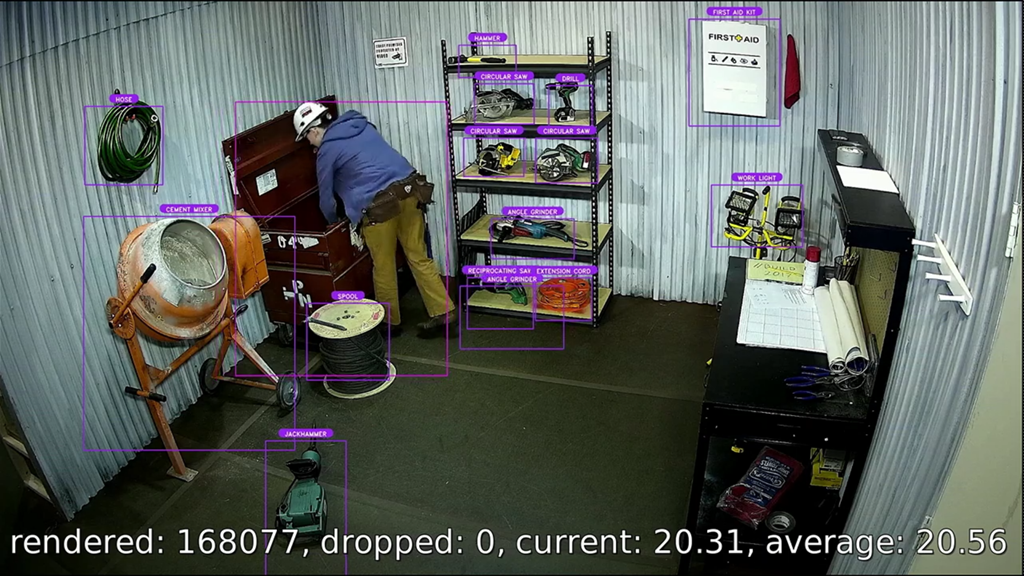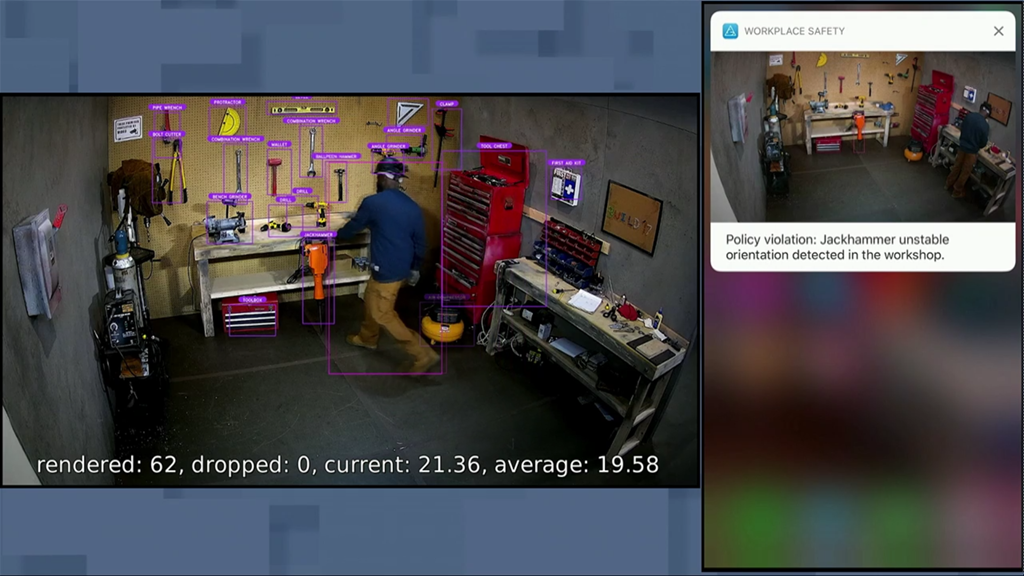I know I have had to explain this a lot in most #AI related conversations that I have had - and lately those have been quite a lot. In my experience, most people use these terms interchangeably when they are meaning one over the other.
Whilst they all are (inter)related and one might help trigger the other, they are still fundamentally different and at some point, it is good to understand the differences. I like the image below ( source ) that whilst on one hand is showing a time graph, the correlation between them and how one is a subset of the other is what is interesting.

#AI is getting more powerful and the potential of it which personally really excites me is the paradigm shift we are starting to see. Fundamentally it is changing on how we use, interact, and, value computers and technology.
It is shifting from us learning machines and their idiosyncrasies (remember when being computer literate was a differentiator on a resume) to this shift where technology learns us and interacts with us in a more natural, and dare I say human manner.

I almost see it as StarTrek (and now showing my age) - the computer is everywhere, yet it is no where. It is embedded and woven into everything we do on the Enterprise rather an some “thing” one interacts with.
And it is awesome to start seeing some of this coming to life, even if it is in a demo as outlined at Build a couple of weeks ago. #AI in the Workplace and how it interacts with objects in real-time and can invoke and interact Business workflow (such as workplace policies).


The degree of calculations is pretty phenomenal - 27 million / sec [separately I would love to understand the definition on calculation 😄]. But then given where we are heading with a fully autonomous car generating about 100GB of data each second, this isn’t small potatoes.
And whilst you can read up more on these terms and how they link , I really like to move away from the different terms which most people confuse in the first place and start thinking of more business outcomes and how enterprises and people will use.

To that end, the three buckets of Intelligent Automation, Robotic Process Automation (RPA), and Physical Automation is what we have found work better. On RPA, the one caveat being that it is not about robots, but rather the automation of a (business) process. The robots aspect would fall under physical automation - which essentially is anything that interacts with the real/physical world.